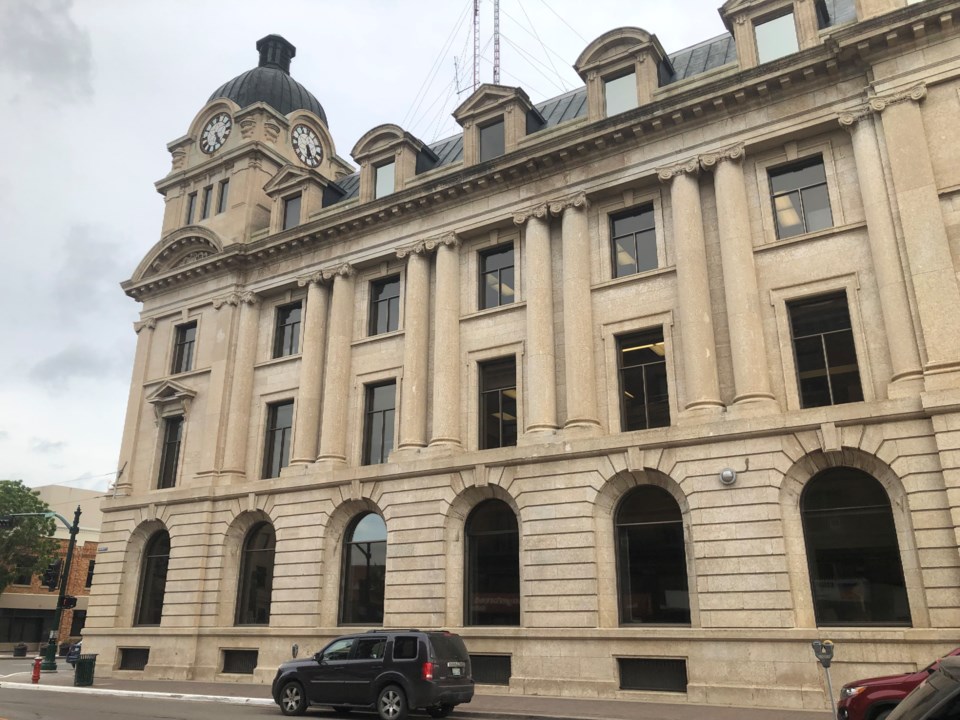MOOSE JAW — City council has officially approved a zoning bylaw change that will allow the construction of more fourplex dwellings in certain zoning districts in the community.
During its May 12 regular meeting, council gave three unanimous readings to an amendment to zoning bylaw No. 5732.
This means homeowners or builders can now construct duplexes, triplexes, or fourplexes “as-of-right” within the R1, R1A and R1B districts as permitted uses, provided the property meets minimum lot size, parking, and development standards — without requiring a rezoning, discretionary use application, or public hearing.
These changes were necessary so Moose Jaw could qualify for funding through the federal government’s Canada Housing Infrastructure Fund (CHIF).
The municipality has applied for more than $44.1 million through the fund, including $26.5 million for the $66.5 million Crescent View Headworks project, $5 million for the $10 million South Hill pumphouse initiative and $12.68 million for the $31.7 million cast iron water pipes and feeder main project.
On its website, city hall said that:
- This regulatory change does not mean existing single-family homes will be automatically demolished or replaced with multi-unit buildings
- The change removes zoning barriers so more housing options can be created gradually, not overnight
- The city is not planning or leading any housing construction projects in these neighbourhoods
- Any new duplex, triplex, or fourplex development would be led by private owners or developers — only if they choose to invest and if it makes financial sense
Council first debated this change during its April 28 regular meeting, but after hearing from concerned citizens, tabled the matter until city hall further informed the public about what these changes meant.
During the May meeting, several council members discussed their thoughts about the amendment.
Coun. Jamey Logan said that while he was absent from the April meeting, he watched the video and listened to citizens’ concerns, which would inform how he voted on this motion.
Coun. Patrick Boyle said he was “very much torn” on supporting this because he disagreed with the bylaw “in principle and the reasons for it.” However, he pointed out that the storm sewer system’s “infrastructure woes (were) adding up” and there is only one infrastructure-related federal program that is also wrapped up in a housing-focused program.
Continuing, Boyle said he “vehemently disagreed” with Ottawa’s approach of combining infrastructure and housing funding, which meant council had no option but to pass this bylaw.
“We would be missing out on five applications totalling a couple hundred million dollars for infrastructure work we need done in the City of Moose Jaw,” he remarked.
“Until another suite of programs comes out, we are tied to this. That is the growing frustration people are having today with the federal government,” Boyle added. “I think you’re seeing a lot of that conversation across Western Canada today.”
Resident Art King interrupted and asked why council wasn’t holding a public hearing since he wanted to comment. However, meeting chairwoman Coun. Heather Eby said the hearing happened in April and council had tabled the matter to now for further discussion.
Mayor James Murdock acknowledged that these were “tough decisions” since the federal government had essentially “handcuffed” council. However, this council had the task of “trying to make up for a lack of judgement over the decades” by other councils and their priorities.
“Now, regrettably, we are the council that has to make these decisions, and if it doesn’t start now, I don’t know when it will,” he added.
Coun. Chris Warren pointed out that even with this change, the zoning bylaw’s requirements would not change and would still control development standards, such as height, size, setbacks and parking — the same for all other residential districts.
The next regular council meeting is Monday, May 26.




